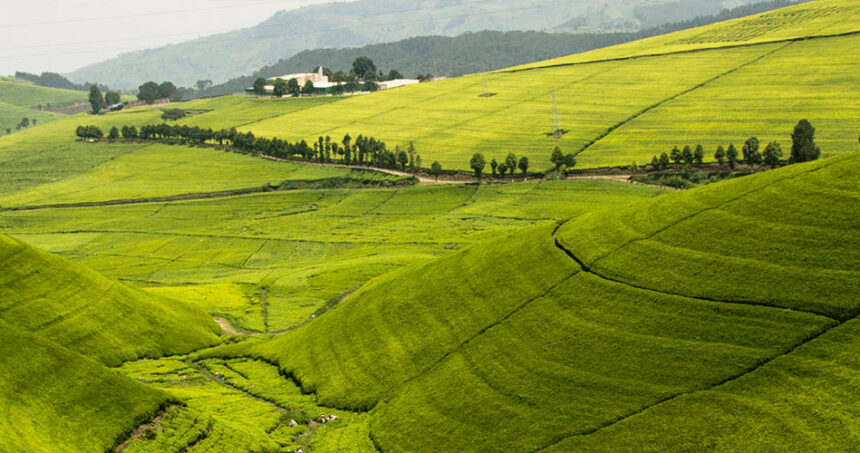Since the 1950s, Rwanda has been producing some of the world’s best
teas. Tea has become Rwanda’s second largest foreign exchange earner
after coffee and a source of income for thousands of farmers. Rwanda’s
high altitude of 1,600-2,500 metres makes it ideal for tea cultivation.
This elevation helps to moderate the climate in this equatorial region
and the mountains help capture much-needed rainfall. Rwanda’s rich
volcanic soil help produce teas with a distinctive flavour. Rwanda’s
spectacular rolling hills have earned it the sobriquet ‘a land of a
thousand hills’.
In the late 90s the government embarked on a privatisation programme of its
core industries, namely tea and coffee.
The main goal of this was to reduce the country’s dependence on subsistence
farming. Rwandan owned companies purchased some of the best tea estates and
have invested in upgrading them. A few years ago Mcleod Russel, a major Indian
producer of Assam Tea, purchased two of Rwanda’s best tea estates.
Tea from the land of a thousand hills

Leave a comment
Leave a comment



